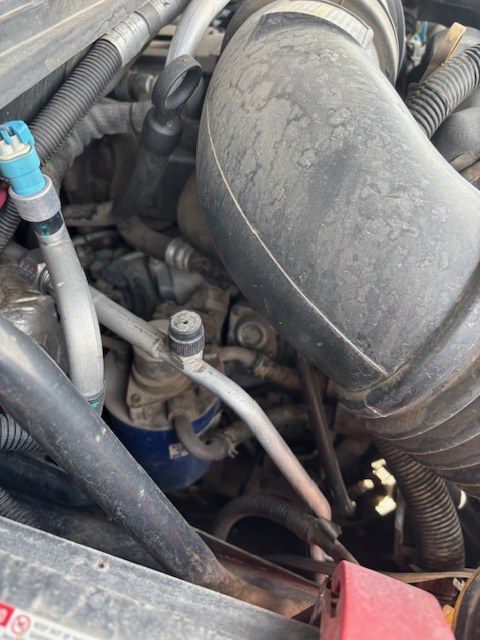Posted on 4/30/2025

General Motors (GM) has announced a significant recall impacting nearly 600,000 vehicles in the United States due to potential engine defects that could lead to power loss or complete engine failure. This recall affects several popular models across GM's Cadillac, Chevrolet, and GMC brands. Affected Models The recall encompasses certain 2021–2024 models equipped with the 6.2-liter V8 engine, including: Cadillac: Escalade, Escalade ESV Chevrolet: Silverado 1500, Suburban, Tahoe GMC: Sierra 1500, Yukon, Yukon XL The issue stems from manufacturing defects in the engine's connecting rod and/or crankshaft components, which may have been damaged during production. These defects can result in engine damage, leading to a loss of power or complete engine failure, thereby incre ... read more
Posted on 4/30/2025

As temperatures rise, there's nothing worse than flipping on your car’s A/C… only to be met with a blast of warm air. Whether you're commuting to work, running errands, or planning a road trip, a functional air conditioning system is essential for comfort and safety. If your car’s A/C isn’t doing its job, don’t sweat it — here’s what might be going on and what you can do about it. 1. Check the Obvious First Before diving into major repairs, check a few simple things: Is the A/C actually turned on? Double-check the A/C button and that the temperature dial is set to cold. Is the fan working? If there’s no airflow at all, the issue might be electrical or a bad blower motor. 2. Low or Leaking Refrigerant The most common reason your A/C is blowing warm is low refrigerant — usually due to a leak in the system. Refrigerant (commonly R-134a or R-1234yf) is the ... read more
Posted on 4/23/2025

If you own a 2015 Duramax diesel truck, you know it’s a powerhouse built for performance. But even the toughest engines need proper maintenance to stay reliable—and one of the most important, yet often overlooked, services is a fuel filter replacement. What Does the Fuel Filter Do? The fuel filter is a crucial component of your Duramax diesel engine. It removes contaminants like dirt, rust, and water from the fuel before it reaches the injectors. For a common rail diesel system like the one in the 2015 Duramax, keeping fuel clean is essential to protect high-pressure injectors and prevent expensive damage. How Often Should You Replace It? GM recommends replacing the fuel filter on a 2015 Duramax every 15,000 miles, or sooner if you notice symptoms like: Hard starts or rough idling Decreased fuel efficiency Poor accel ... read more
Posted on 4/16/2025
Your Honda’s engine is a finely tuned machine and keeping it running smoothly requires regular maintenance. One often-overlooked service that plays a vital role in engine performance and longevity is a valve adjustment. Honda vehicles typically Honda Pilots and Odyssey 2018 and older, especially models with mechanical (non-hydraulic) valve lifters, require periodic valve adjustments to maintain proper engine function. In this blog, we’ll explain what a valve adjustment is, the signs that your Honda may need one, and why this service is essential for your vehicle’s health. What Is a Valve Adjustment? A valve adjustment is a precise process where a technician adjusts the clearance between the valve stem and the rocker arm or camshaft. This gap is critical because it allows the valves to open and close properly, controlling the air-fuel mixture entering t ... read more
Posted on 4/9/2025
.jpg)
As winter fades and spring emerges, April brings not only warmer weather but also National Car Care Month—a timely reminder to ensure your vehicle is in top condition for the seasons ahead. Regular maintenance not only enhances safety but also extends the lifespan of your car and can prevent costly repairs down the line. Key Areas to Focus On During National Car Care Month:Tire Maintenance Your tires are the only point of contact between your vehicle and the road, making their upkeep crucial. Regularly inspect them for proper pressure, tread depth, and signs of wear or damage. Maintaining correct tire pressure ensures optimal fuel efficiency and handling. Additionally, scheduling annual wheel alignments can prevent uneven wear and prolong tire life. Oil Changes Engine oil lubricates moving parts, reduces friction, and helps keep the engine clean. Changing your vehicle's oil at recommended intervals is cru ... read more